“Loneliness, Depression, and Anxiety,
Starved our society of gaiety!”
SIMRA SAJID
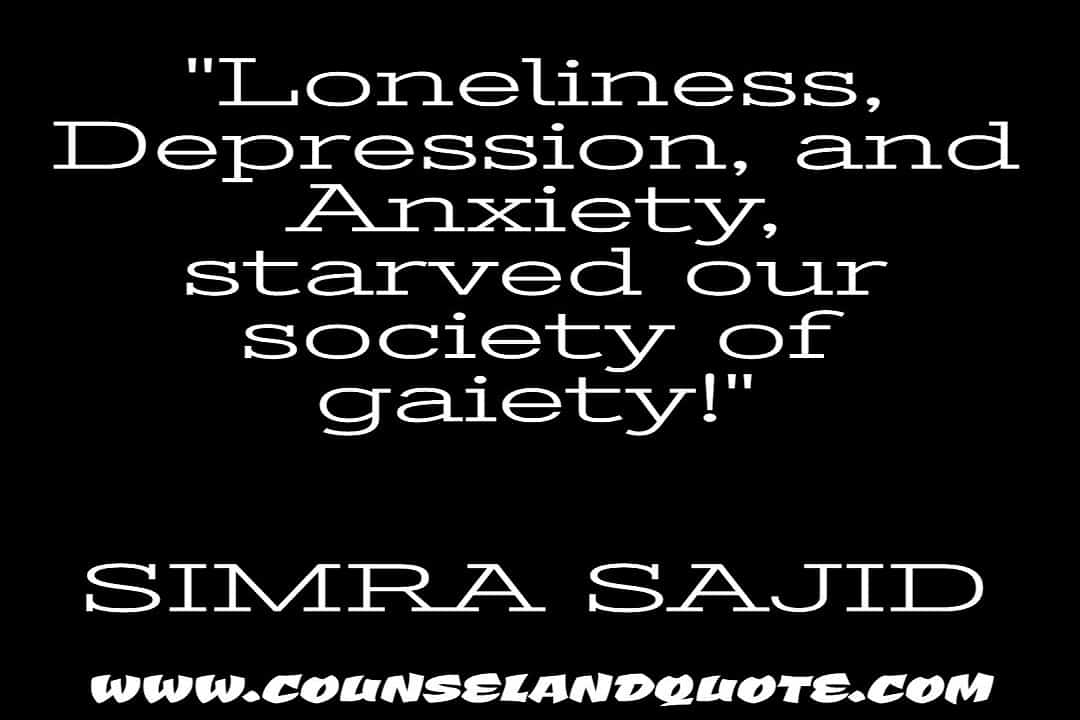
Loneliness Depression Anxiety
Loneliness depression anxiety is shooting up in our contemporary society. They are a chunk of “Mental Health Disorders.”
Mental illness is the new talk of the town and is running in every rung of society worldwide.
Mental disorders could be caused by several reasons like genetics, personality, environment, stress, and many more. The reasons can be major as well as minor. Lately, we have seen a tremendous increase in mainly three types of mental health issues, namely, ‘loneliness, depression, and anxiety.’
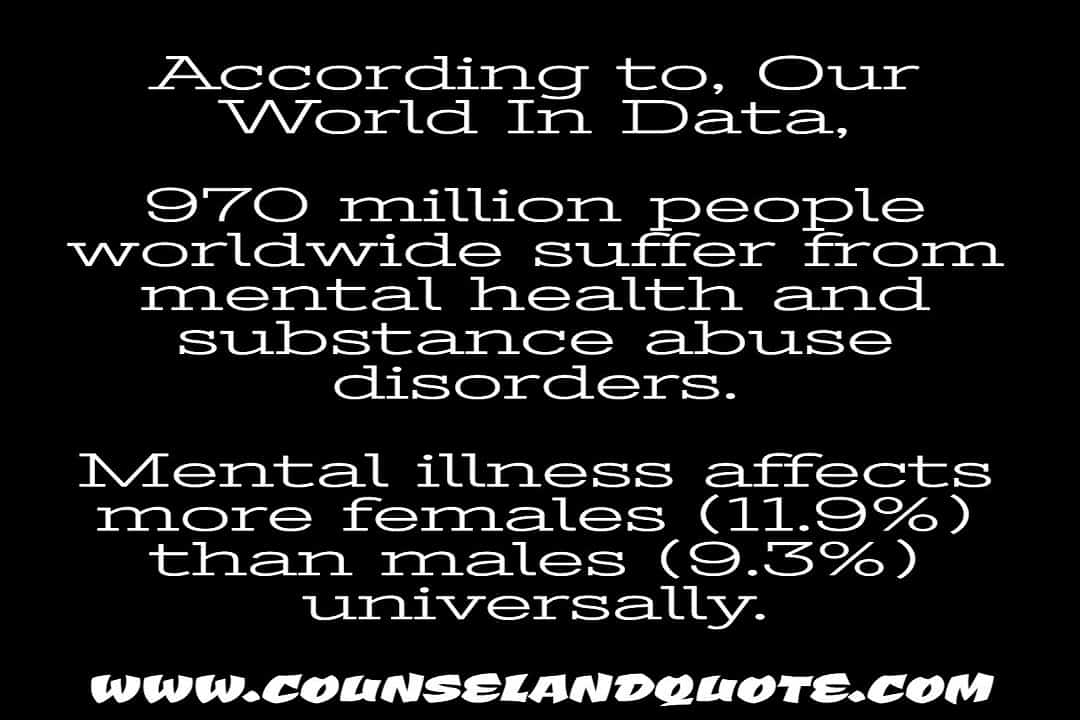
According to Our World In Data, 970 million people worldwide suffer from mental health and substance abuse disorders. It also highlights mental illness affects more females (11.9%) than males (9.3%) universally.
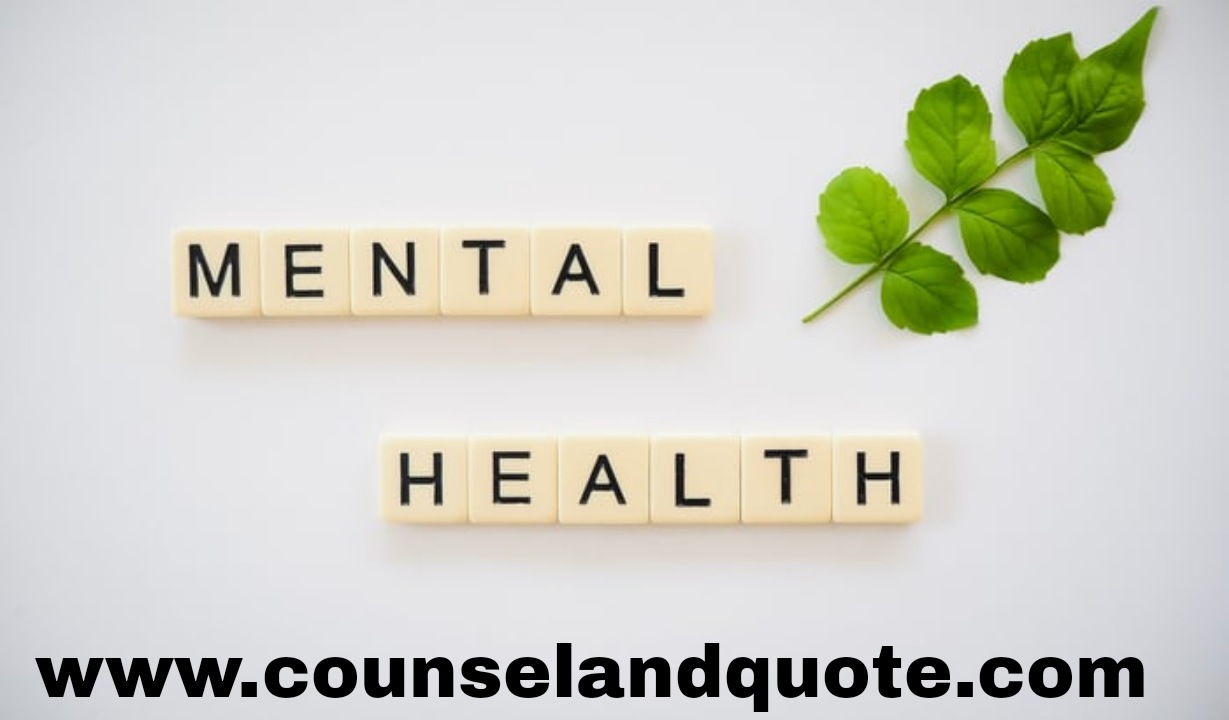
WHO Initiatives Regarding Mental Health
World Health Organization(WHO) states, “People with severe mental health conditions die prematurely – as much as two decades early – due to preventable physical conditions.”
In 2019, WHO launched the WHO Special Initiative for Mental Health (2019-2023): Universal Health Coverage for Mental Health to ensure access to quality and affordable care for mental health conditions in 12 priority countries to 100 million more people.
We can see all these data are concerning. So, below I’ll put down varieties, symptoms, and remedies for loneliness, depression, and anxiety.
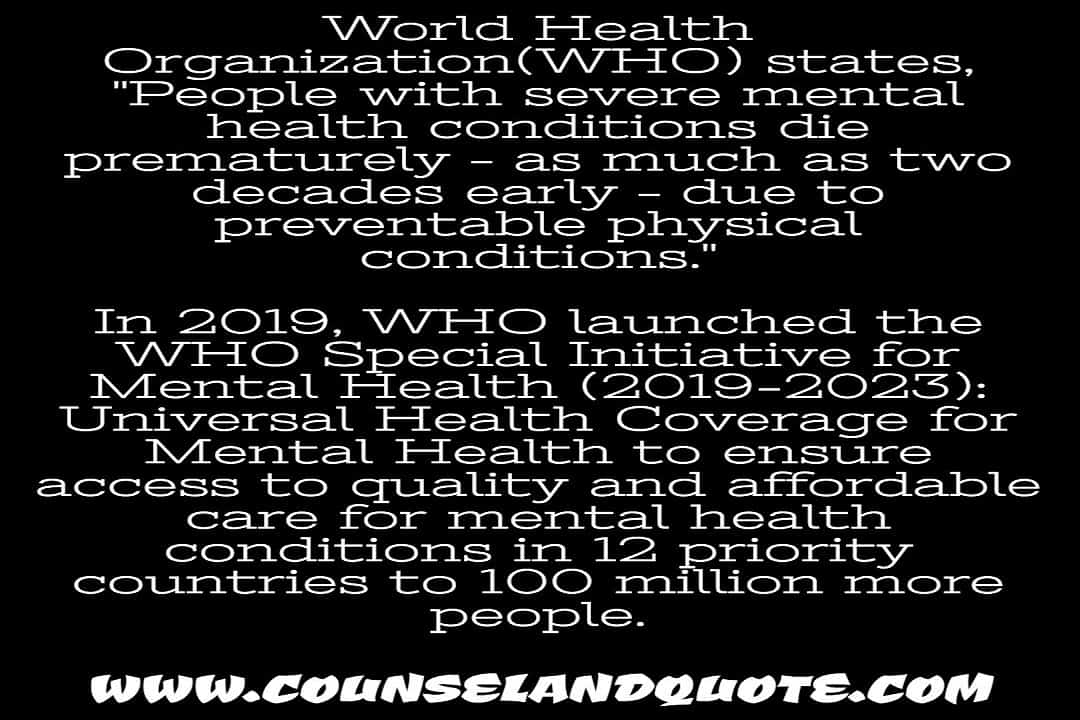
Let’s start with loneliness.
What Is Loneliness?
Loneliness is a mental and psychological condition where the person feels lonely because of deficiency in quantity and quality of people or relationships.
A lonely person feels fearful and emotional of his current aloof state and, loneliness often rouses lonely people to have social connections that are at times at the stake of the person’s overall wellbeing. It ended up becoming worse.
Research shows loneliness could be found throughout society, even people with strong relationships and successful careers. Most people experience loneliness at some point in their lives. Frankly, it’s just a matter of when where, and how.
Even some academics and professionals have claimed loneliness has become an epidemic in the 21st century.
What Are The Types Of Loneliness?
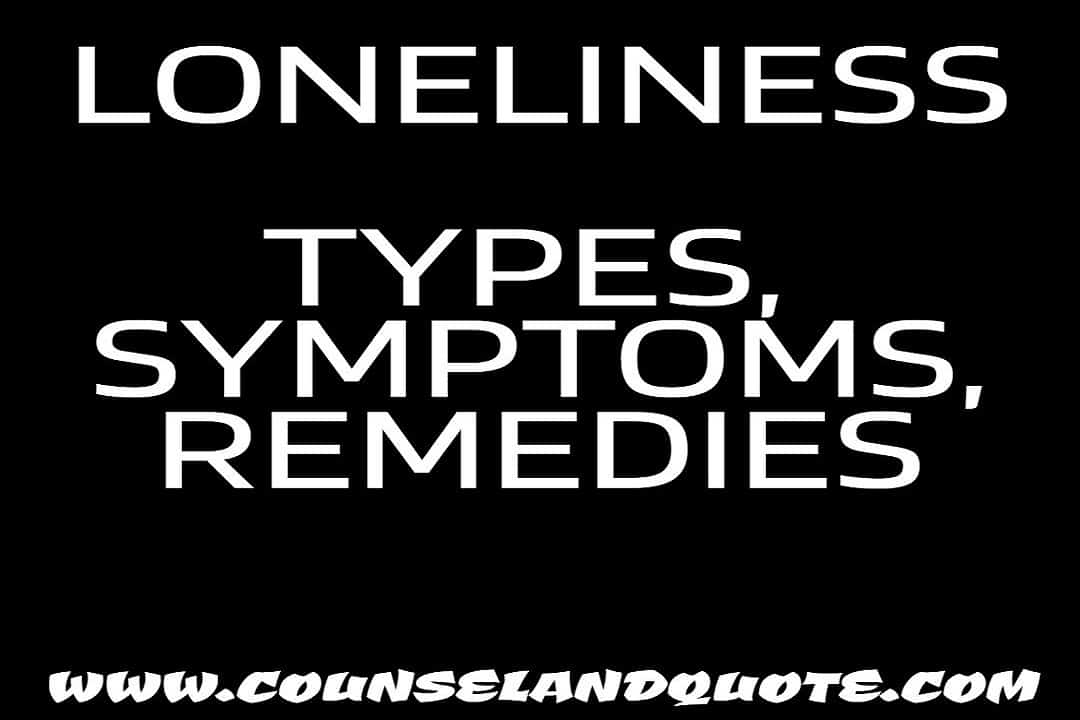
Basically, loneliness is of two types, Transient Loneliness, and Chronic Loneliness.
- Transient loneliness exists for a brief period and it might not affect you badly it can even boost you to pursue your higher aspirations and strengthen relationships.
- Chronic loneliness lasts for a substantial amount of one’s life and affects the person negatively. It costs you, your health and life
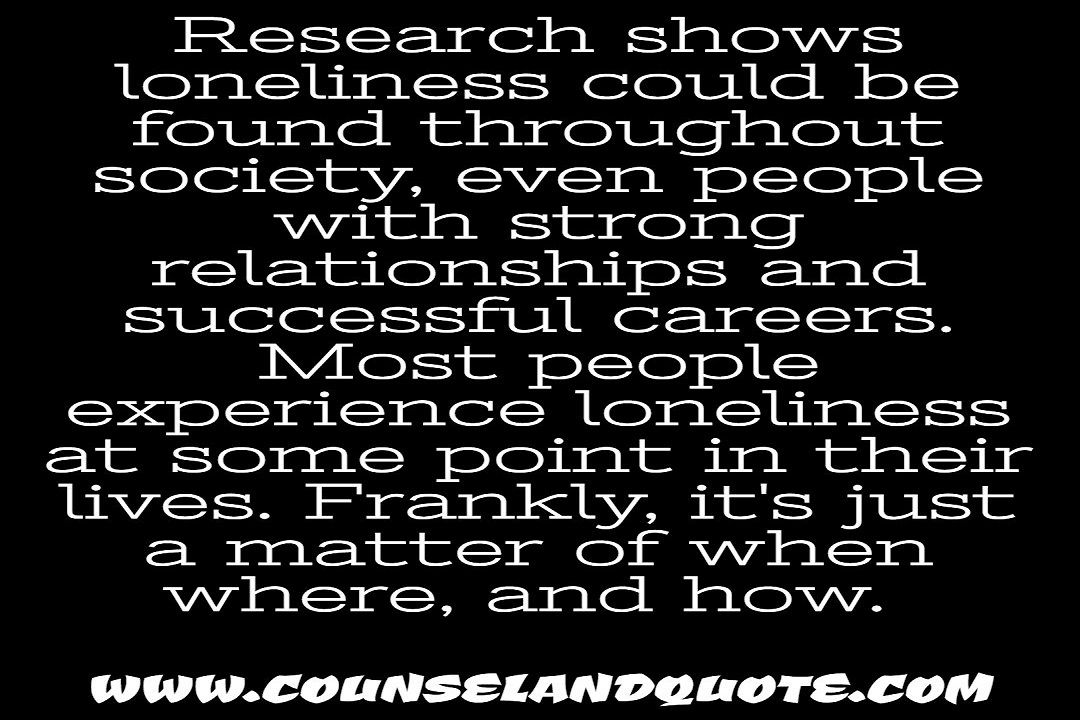
What Are The Symptoms Of Loneliness?
There are some signs and symptoms for every disorder. Below I’ll put down some clues of loneliness so that you can become conscious if you witness any of them within you or in any of your acquaintances.
1 – Sleep issues
It is one of the common symptoms of loneliness. You might suffer from insomnia. Your loneliness wrecks your sleeping patterns.
Author Lianne Kurina, PhD, said in a press release, “What we found was that loneliness does not appear to change the total amount of sleep in individuals, but awakens them more times during the night.”
2 – Exhaustion
If you feel continually exhausted and drained out, it can hint towards loneliness. Moreover, it will become breeding grounds for other health issues like a weak immune system and more.
You might feel extremely heavy to gel up with people out there.
3 – Unusual Increase And Decrease In Appetite
You are having a poor appetite if you are in the fold of loneliness. Loneliness often prompts you to put on weight by hogging on food items just to compromise and compensate for your mental illness.
It in turn makes a person vulnerable to other health problems like high cholesterol levels, imbalanced blood pressure, and blood sugar level.
4 – Decreased Concentration Power
Your power of focus suffers severely if you are lonely. You can’t commit yourself to one particular activity at a time. It becomes fragmented and haphazard.
Your concentration power decreases.
5 – Physical Discomforts
You encounter a poor immune system. You feel like having a cold and other viral infection. You will feel other physical discomforts. You might have this urge for warmth. You will take long hot showers and wrap yourself up most of the time, and sit in a cosy place.
You try to alleviate your mental cold by becoming physically warm.
6 – Restlessness
There is this turmoil within you that is hard to express and harder to understand. You feel uneasy all the time.
According to Psychology Today, “lonely individuals report higher levels of perceived stress even when exposed to the same stressors as non-lonely people, and even when they are relaxing.”
7 – Negative Self-Worth & Self-Doubt
You have a negative picture of yours. You constantly doubt your capabilities and perceive yourself as a worthless person. Every ill thought rises within you for yourself. It will break your morale, determination, and self-esteem.
We have discussed loneliness, its types, and its symptoms, let’s move to depression, types of depression, and its symptoms.
What Is Depression?
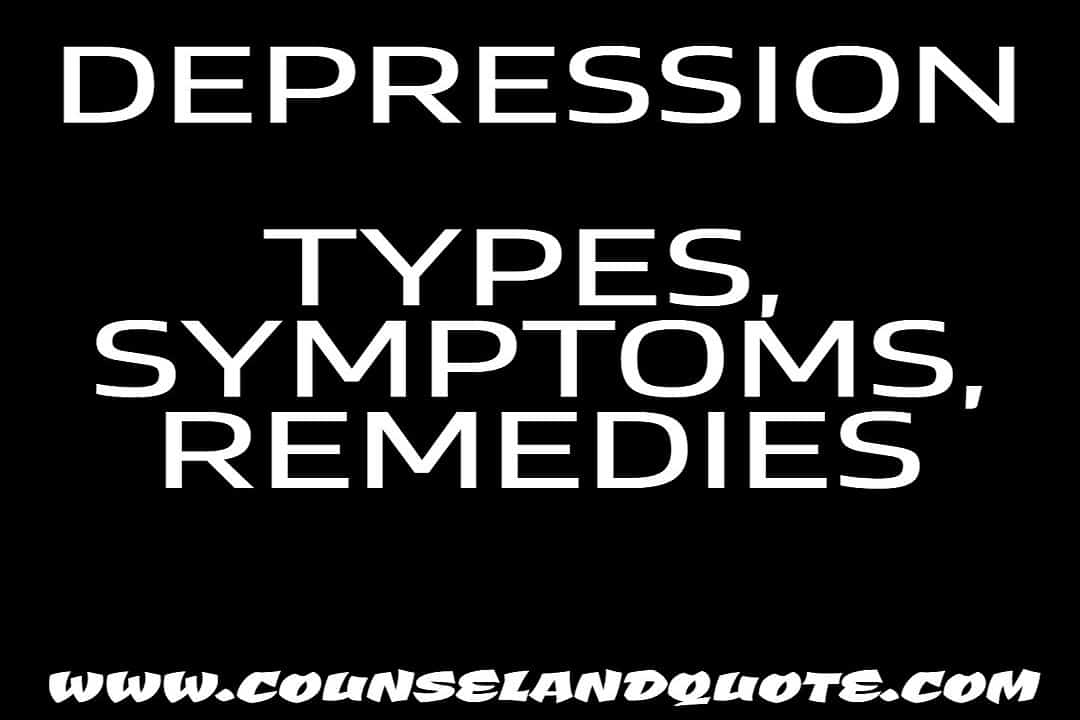
Depression is no more alien to anyone. Depression does not distinguish among ethnicity, caste, religion, sex, age, and anything for that matter.
Depression is a common mental and behavioural disorder. It negatively affects your thoughts, feelings, actions, behaviours, motivations, and feelings of well-being. It is basically a mood disorder but it is way more different from usual mood fluctuations.
Depression came a long way from earlier demonic possessions to later mental and emotional disorders.
Dr Dorothy Rowe, an Australian Psychologist and Author, whose area of interest was depression quotes, “Depression is a prison where you are both the suffering prisoner and the cruel jailer.”
What Are The Types Of Depression?
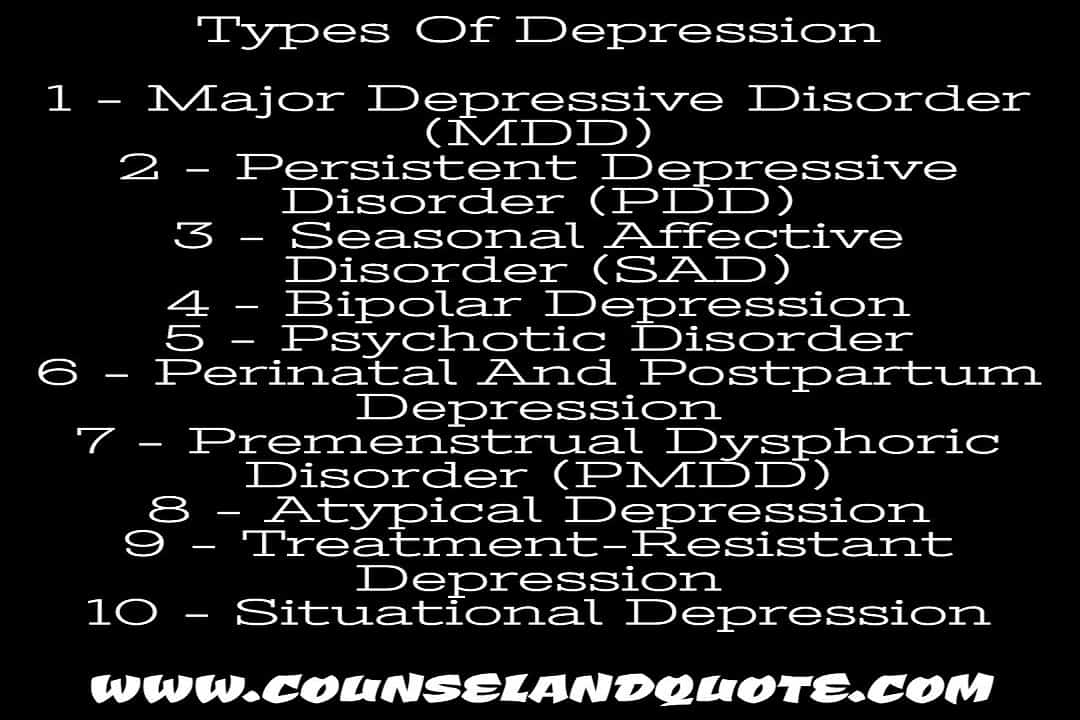
There are also different types of depression and below are their names.
When you are depressed most of the time for any reason then you are a victim of Major Depressive Disorder. You may feel depressed 4 days a week, or even more.
If you are feeling depressed for more than 2 years then you are a sufferer of PDD. It has two dimensions.
A) Dysthymia– It means you have a low-intensity persistent disorder.
B) Chronic Major Depression– When your depression gradually overtakes your every activity of life, and this behaviour is continuing, then you have the chronic major disorder.
As you can understand from its terminology, it is a kind of major depression that mainly inflicts on the individual in the winter months.
In the winter season when the days are short and the sunlight is low, you are prone to SAD. When the season changes to spring and summer, you feel better.
It is a swing of mood, from very ecstatic to very depressive. These episodes of the swing of moods from “highs” to “lows” make you very depressive. Medication can help bring your mood swings under control.
In Psychotic disorder people sense, and feel different kinds of things. They can mainly be grouped into three different categories.
A- Hallucinations– Hallucinations are those experiences that are directly related to your sensory nerves. They appear real to you, but other people around you don’t feel or hear the same thing.
B- Delusions– Delusions are mainly thought disorders. A person under the infliction of delusion can’t differentiate between imaginary and real thoughts. A person who has it can’t tell what’s real from what is imagined.
C- Paranoia– Paranoia is a state in which the person wrongly believes that others are trying to harm them.
Those women who feel depressed pre-childbirth and post-childbirth fall in this category.
Women with PMDD have depression and other symptoms at the start of their menstrual period.
Atypical depression is a specific type of depression in which the symptoms vary from the traditional criteria. One symptom specific to atypical depression is a temporary mood improvement in response to actual or potential positive events. This is known as mood reactivity.
It means that you are resistant to the treatment. There are many reasons your depression might be treatment-resistant. Maybe you might have other conditions that are making your treatment difficult. You could not continue with the same kind of treatment.
It is a kind of depressive situation that arises due to an unfavourable situation, like someone’s death, breakup, or loss.
What Are The Symptoms Of Depression?
Depression can be recognized by its symptoms and clues. Following are some major manifestations of depression. The longevity and intensity of the symptoms will vary from person to person.
1 – Loss Of Energy
You will feel extremely tired even to perform small tasks. Your daily life will be hindered because of a loss of energy.
2 – Loss Of Appetite Or Overeating
It often leads to weight gain and weight loss. You will notice irregular fondness of food. Your relationship with food will suffer. It would be on extremes.
3 – Guilt
You will think and feel about yourself. You feel as if you are the culprit of the crime which in reality you never committed.
4 – Loss Of Pleasure In Daily Life
You will feel empty and indifferent towards your regular lifestyle. You may lead a charmless and dull life. Your hobbies and relationships will greatly suffer because of this.
5 – Insomnia Or Hypersomnia
You may experience trouble with your regular sleeping patterns. Either you sleep too long or you wake up at very short intervals.
6 – Hopelessness
You have this utter despair and distress filled within you. You will lead a sorrowful life. You will think about your failures and inability way more.
7 – Pessimism
You will feel extremely pessimistic about your life. All you think of is your losses. You have a dark and negative side to everything.
8 – Slowness Of Thoughts And Actions
You will have incoordination in your speech and actions. You will have a rollercoaster journey to express yourself through words and actions. You might think something else and speak something else and then stop abruptly.
9 – Suicidal Tendencies
It’s bitter but it’s true. You might think of suicide to end your incomprehensible feeling of disgust and depression.
Now, let’s understand anxiety its types, and its symptoms.
What Is Anxiety?
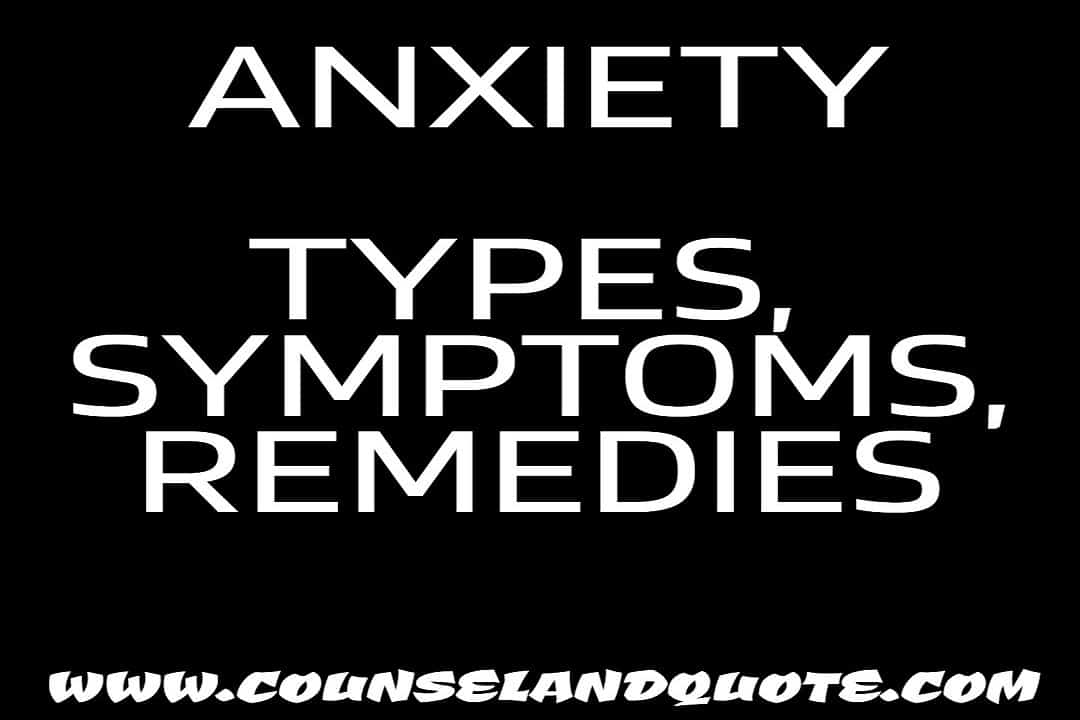
Anxiety is a state of uneasiness. David Barlow defines anxiety as “a future-oriented mood state in which one is not ready or prepared to attempt to cope with upcoming negative events.”
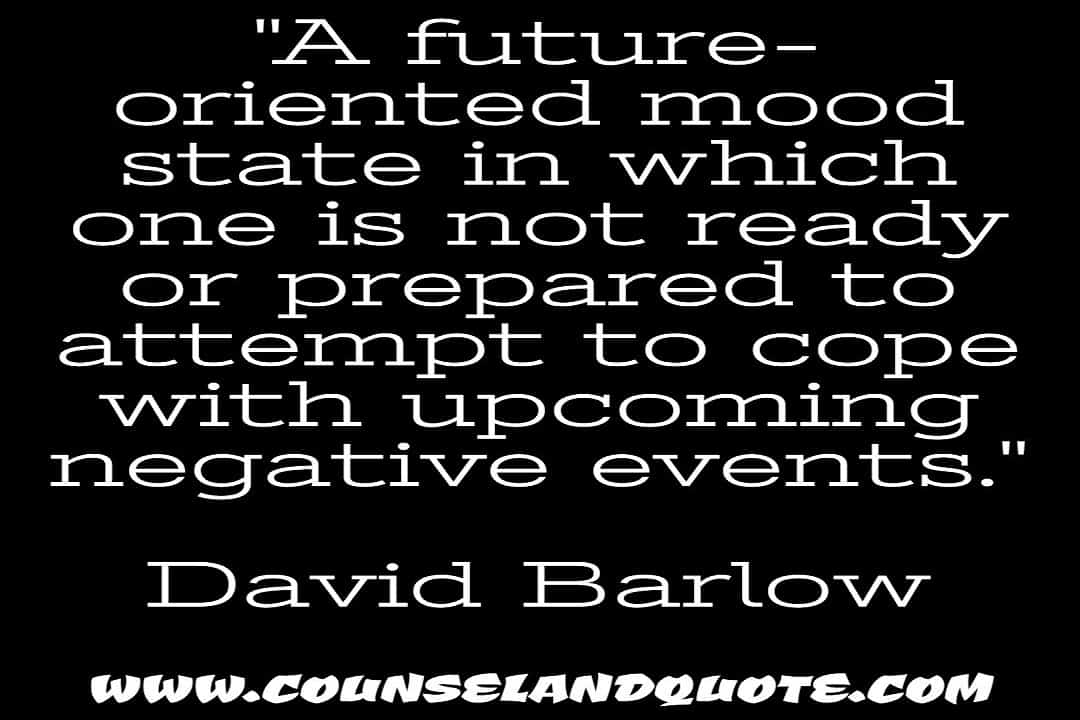
It is an unpleasant emotion of inner tumult. It is a kind of nervousness.
American Psychological Association states, “Anxiety is an emotion characterized by feelings of tension, worried thoughts and physical changes like increased blood pressure..”
Though anxiety is a normal human response it can take the form of mental and psychological disorders if it persists excessively.
Although anxiety is closely related to fear, it is distinguished from it.
Fear is caused by the present situation and it is short-lived while anxiety is of the future and it is long-acting.
What Are The Types Of Anxiety?
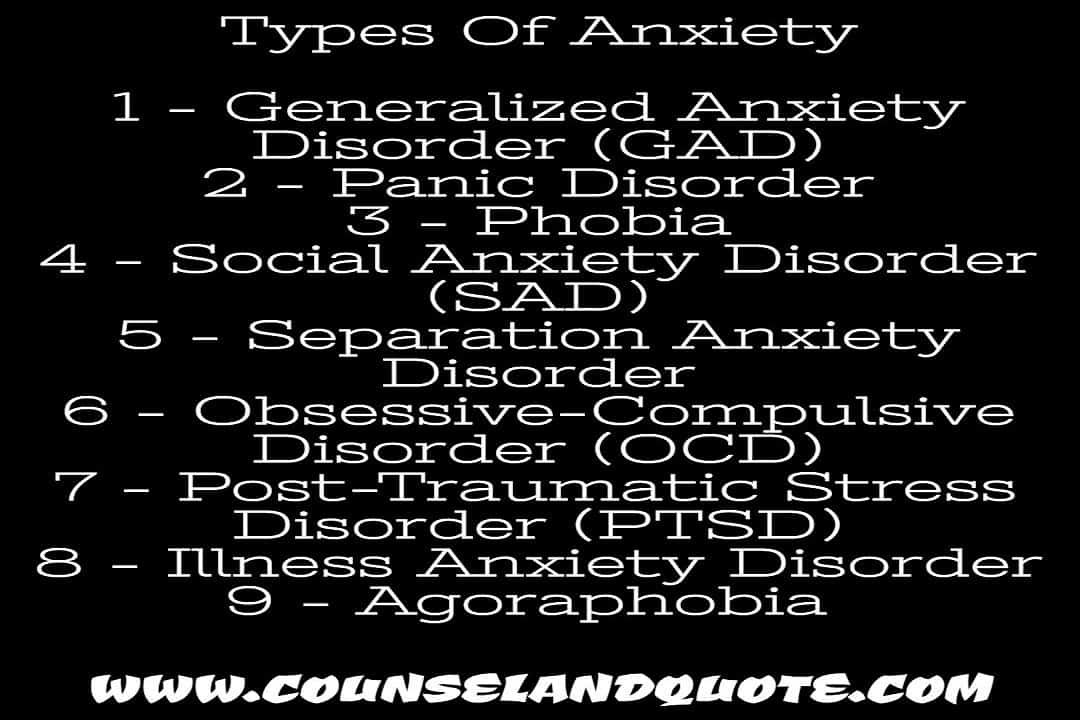
There are some types of anxiety disorders like:
It is excessive, exaggerated anxiety and worries about everyday life events for no obvious reason.
Panic disorder is sudden feelings of terror when there is no real danger.
A phobia is a persistent, excessive, unrealistic fear of an object, person, animal, activity or situation.
In social anxiety disorder, fear and anxiety lead to avoidance that can disrupt your life.
It is diagnosed when symptoms are excessive for the developmental age and cause significant distress in daily functioning. Symptoms are like- Recurrent and excessive distress about anticipating or being away from home or loved ones.
It is a chronic and long-lasting disorder in which a person has uncontrollable, reoccurring thoughts.
A feeling of stress after a traumatized situation is the foundation for it.
When you are unduly worried about your health and disease, then you are a victim of it.
When you feel stressed by feeling that the environment around you is not safe for you, then you are a patient of Agoraphobia.
What Are The Symptoms Of Anxiety?
Clues are the indicators of any major and minor diseases. Anxiety disorders have their own set of symptoms to alarm us of their arrival. Below are them.
1 – Unexplained Uneasiness
You feel vexation and distress. It keeps your heart and mind racing out of nowhere.
2 – Weak Concentration
Your concentration power will drastically decrease. You can’t focus on one thing for a greater amount of time.
3 – Palpitations
You feel a fluttering heartbeat. It is because of anxiety disorder.
4 – Tension
You will be tenser during an anxiety attack. It feels like you are at the edge.
5 – Sleep Inconsistencies
You will face problems in your sleeping patterns. It would be difficult for you to sleep and to stay asleep.
6 – Breathing Issues
You will experience choking or breathlessness if you are anxious.
7 – Sweating
You will break out in a sweat during anxiety.
This is the most significant part. Now I’ll list down cures or remedies of loneliness, depression, and anxiety collectively. You will definitely get benefit from them So, without further ado let’s get started.
What Are The Remedies For Loneliness, Depression, And Anxiety?
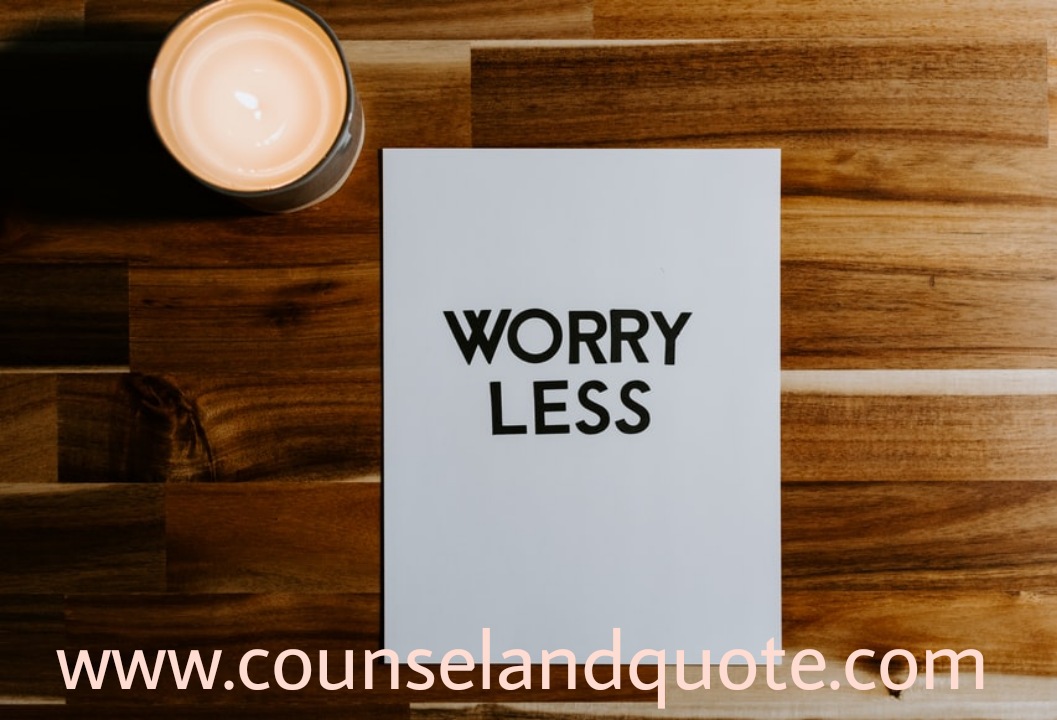
We are all looking for ways on dealing with loneliness, depression, and anxiety.
Being lonely, depressed, and anxious is painful but choosing not to take any step for the sake of your sanity and well-being is troublesome.
Beneath are some effective tips that you can take into consideration to uplift your psychological and emotional uneasiness.
1 – Acknowledgement Of Your Condition
The first and foremost step is to acknowledge and accept your condition whatsoever. Admit that you are lonely, depressed, and anxious. I know it at times is very difficult to confess this to yourself. Nevertheless, this is the first step of your solution.
2 – Keep Your Radar Tuned To Introspection
Everyone should observe their own mental and emotional processes like feelings, thoughts and, emotions. Analyze the outcomes of your thoughts and feelings. Always remember that the consequences of the decisions are more powerful than decisions themselves.
It is a self-analysis process and can make you connect between your experiences and responses.
3 – Mindfulness Depletes Your Loneliness, Depression & Anxiety
Mindfulness is a practice of consciously focusing on your present physical and mental states like your thoughts, feelings, emotions, and sensations. It is literally “living in the moment.” It improves your mental and physical well-being.
This is employed in the practical treatment of depression, loneliness, anxiety, and stress.
4 – Inhale Serenity, Exhale Restlessness
Take a deep breath while you are lonely, depressed, and anxious. We hardly notice our breaths in these melancholic times. But experts recommend different breathing patterns to uplift our physical and mental well-being.
Deep breathing will enable your stress to go down the drain. It is a small practice but significant. Do try it with sincerity and you will already feel the change.
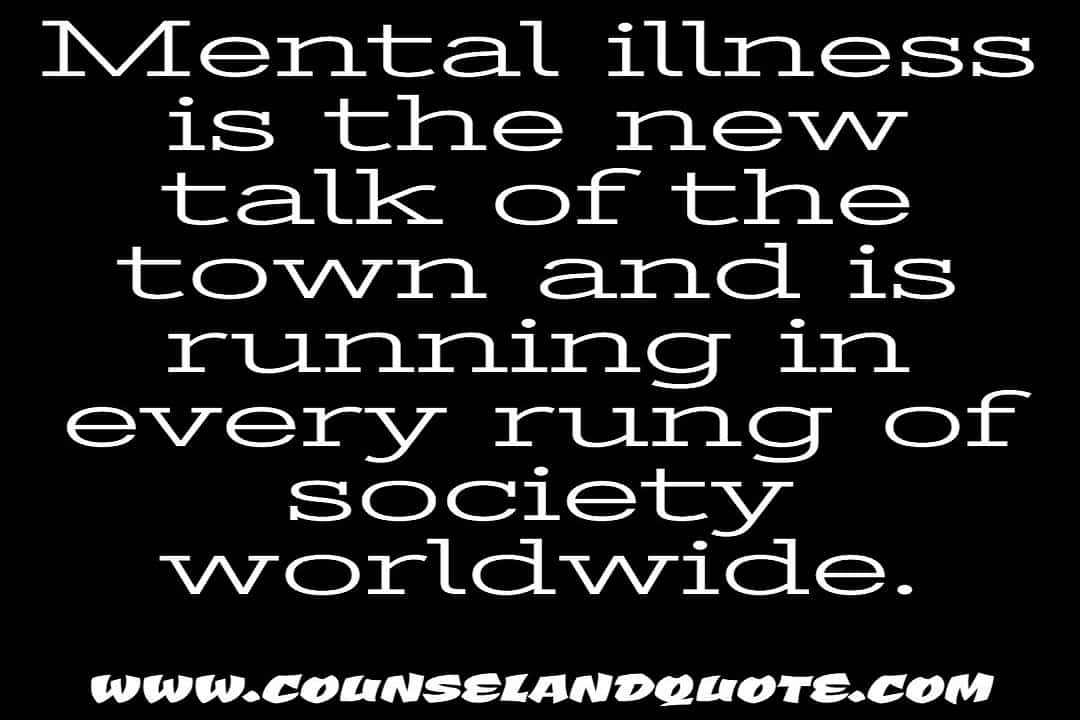
5 -Include Healthy Foods In Your Diet
With fast-paced lives, we ignore the nutritional benefits of food many times. Everyone is trying to satisfy their taste buds by sacrificing their health and wellness.
Mental Health Foundation of United Kingdom, mentioned, “What we eat doesn’t just affect our physical health: it can also affect our mental health and wellbeing.”A Mediterranean-style diet (one with lots of vegetables, seafood, fresh herbs, garlic, olive oil, cereal, and grains) supplemented with fish oil can reduce the symptoms of depression.
Healthy food can alter our mental frame and mood. It can draw us further apart from the feelings of loneliness, depression, and anxiety.
6 – Do Some Exercise
Exercise plays a vital part in treating depression, anxiety, and loneliness. Exercise boosts you and affects the secretions of various neurochemicals that in turn regulate your mood and mental health. Consult your psychotherapist with the kind and time of exercise you can follow and then go ahead.
7 – Go For A Walk
If you feel low and lonely stroll the streets. Keep your mouth shut and let your thoughts do all the talking. See the people around. Quietly observe how you feel. This will be relaxing.
8 – Go For Holistic Living
Just like your body needs food, your mind and soul also need to be fed.
Live your life according to holistic living. Your physical, mental and emotional self is really important and they are interconnected. Every part of yours affects the other part. If you start a healing process get to the very root of your problem. It will help ease other things.
Like learning a healthy habit of swimming, mindfulness, personal growth, reading new books, making a craft, and maintaining a journal.
It will help reduce your depression, anxiety, and loneliness and shower you with happiness and enthusiasm.
9 – Try To Have Balanced Thoughts
Striking balance is pretty tough and especially if it’s about your thoughts. Naturally, you might deviate more to one side than the other. But if you keep a check on your thoughts, you can analyze and strike a balance between positive and negative ones.
This exercise is very helpful because it motivates you to pull yourself together in adversities like depression, loneliness, and anxiety.
10 – Positive Self-Talk Is A Must
What is cooking in your mind is more important than what is cooking in your kitchen.
Never, ever, ever let negative self-talks overshadow you. This is remarkably significant. Generally, we all talk politely and nicely with others even to the ones we repel. But have we ever observed how we talk to our inner-self?
We keep hurting our feelings, emotions, and confidence. This negative attitude is not good for your health and wellness.
Research indicates people with positive self-talk have increased life span, lower levels of depression, better satisfaction, and psychological well-being.
11 – God Is Your Ultimate Saviour
When you feel lonely and depressed remember there is someone who knows you better than you know yourself. The very thought of it encourages, excites, and cheers you that there is someone who knows you inside out and He is God.
There are times when we feel low and want someone who can scan our feelings and emotions as it is. You need someone who understands you without explaining anything or uttering a single word and God fulfils this condition.
God sheds your loneliness, depression, and anxiety and fuels you with enormous optimism, hope and, confidence.
12 – Join A Club To Suppress Your Loneliness, Depression & Anxiety
Take active participation in activities that interest you. Join a class or club such as a library, art club, or any kind of recreational class. It will enable you to meet with people who share your interest and they might be able to share your feelings too. You get more familiar and confident while dealing with people.
You will surely feel better if you meet new people who have that charm and their enthusiastic aura will positively affect you. You feel a sense of belonging.
13 – Overthinking Is A Monster
Runaway from overthinking as prey runs away from a hunter for the sake of saving its life.
Overthinking is the godfather of stress, lack of confidence, fear, anxiety, loneliness, and depression.
Overthinking is cruel, it will make you lost in bewilderment. It disturbs your peace, sleep, your problem-solving, and decision-making ability negatively. Try to avoid it.
14 – Turn Towards A Counselor/Psychotherapist
Counselling is a form of treatment for psychological, emotional, or behavioural disorders.
Counselling builds a professional relationship between the counsellor and the client. Counselling can also teach you ways of dealing with stressful life events and circumstances you can’t change yourself.
When you feel lonely and depressed frequently you should go to a counsellor. You need someone to listen to you. You need to vent out the emotions that you are suppressing.
The therapist will guide you, they understand you. They give you a solution. It promotes your personality growth.
They might do some therapies like
- Exposure Therapy
- Cognitive Behavioral Therapy (CBT)
15 – Medication/Antidepressants If Needed
Medicines will be prescribed by a psychiatrist to uplift your brain chemistry. It works as a complement to your psychotherapy also. It takes a relatively greater time to treat.
It is important to let your doctor know if a medication does not work or if you experience side effects. They are not habit-forming. They will help you eradicate your loneliness, depression, and anxiety.
This article highlights a deep analysis of loneliness, depression, and anxiety. It sums up their types, symptoms, and remedies.
I have put in my sincere effort in writing this utterly vital article. Kindly let me know of your valuable comments down in the comment section. Please share it with everyone out there. And spread the word to help the world.
Thank You!
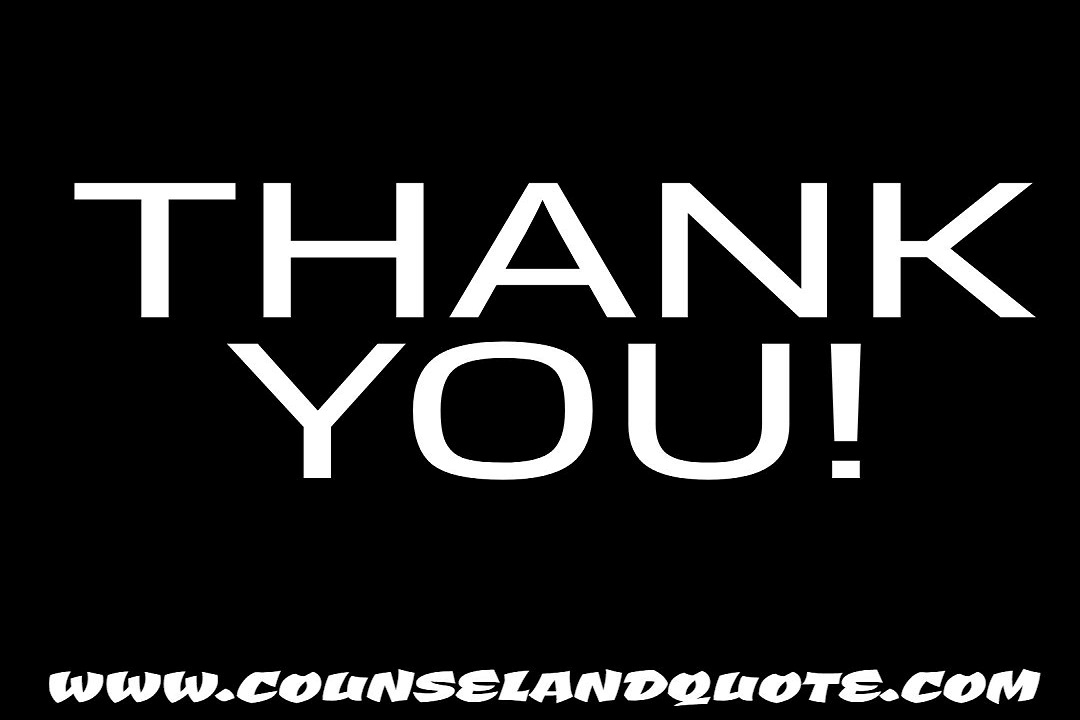
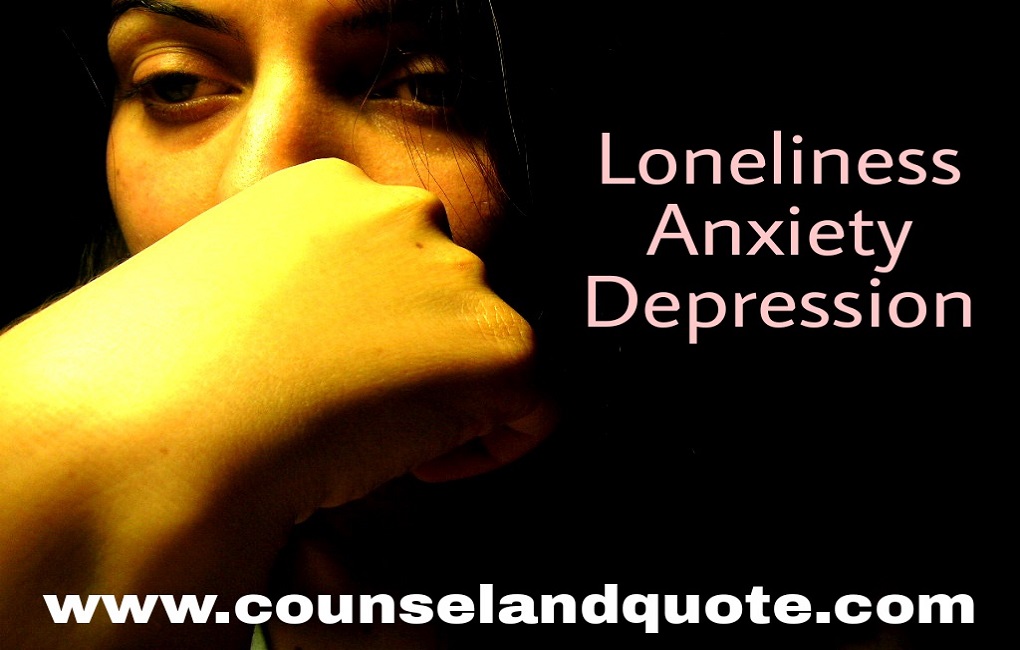
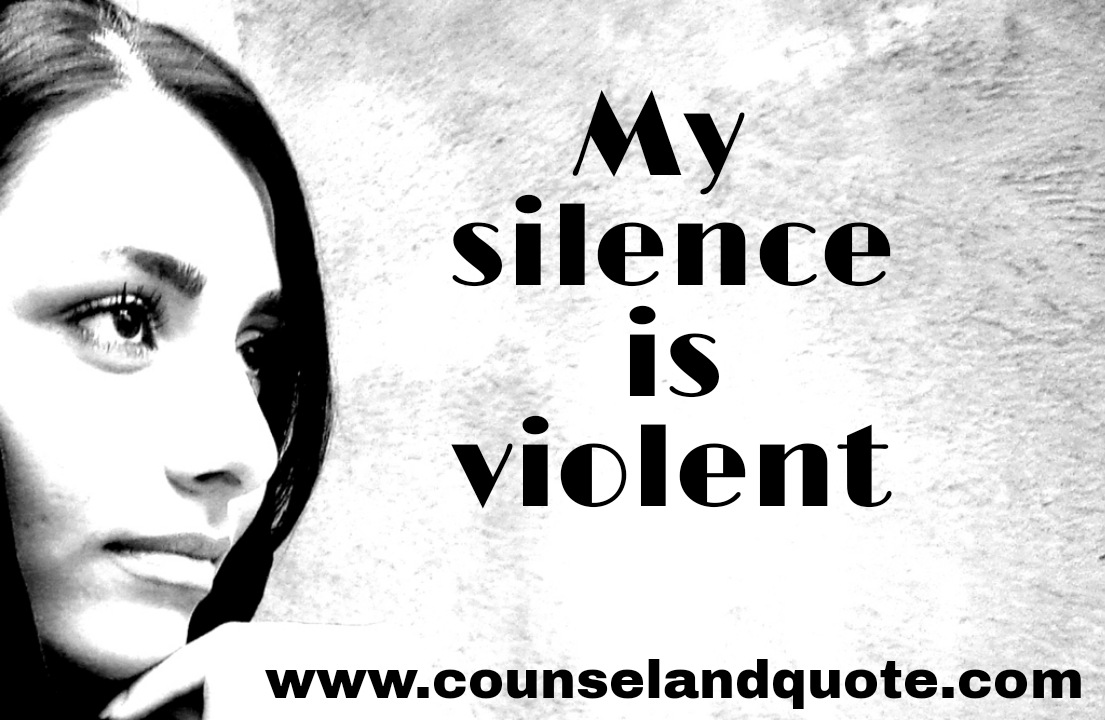

1 thought on “Loneliness Depression Anxiety| A Deep Analysis”